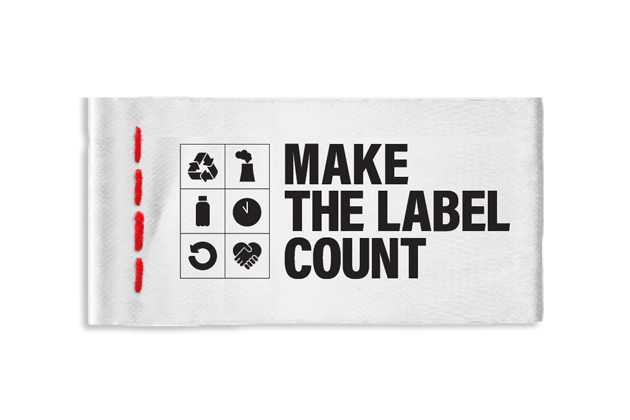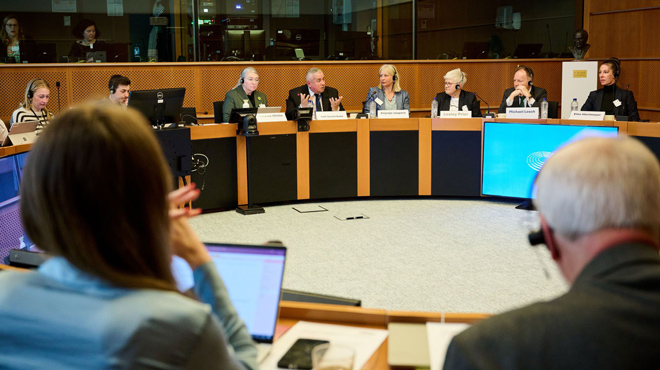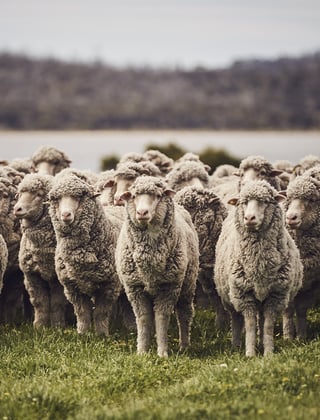Australian woolgrowers helping to improve European textile labelling

The proposed environmental labelling on apparel products for sale in the European Union (EU) that threatened to disadvantage Australian wool has been deferred. AWI and other natural fibre organisations continue to defend natural fibre products in upcoming EU textile sustainability policies.
AWI CEO John Roberts says Australian woolgrowers have made a difference in the EU by raising their concerns about the shortcomings of the Product Environmental Footprint (PEF) methodology that rates wool and other natural fibres poorly.
Although the EU’s labelling proposals have been deferred, John says it is vital that Australian woolgrowers continue to be heard so that natural fibres including wool are treated fairly in the EU.
“Thanks in part to the ongoing strong voice from woolgrowers, the proposed environmental labelling on apparel products for sale in the EU has been deferred for now,” John said.
“However, it remains vital to maintain the pressure on EU policymakers, so they recognise the environmental and biodiversity benefits of natural fibres and fulfil their promise to put fast fashion out of fashion.
“Addressing the biases and limitations in the EU’s sustainability rules is essential to ensure a fair and accurate assessment of wool's sustainability credentials so that consumers are not misled. It is especially important for the Australian wool industry because the EU currently consumes about a quarter of all Australian wool.
“Furthermore, due to the EU being a driving force in environmental policy, other markets across the world could potentially follow its lead and adopt similar initiatives to the EU in their own jurisdictions.”
In April, a new petition was launched by Make the Label Count (MTLC) urging the European Commission to ensure fair treatment of natural fibres, including wool, in upcoming EU textile sustainability policies.
Formed in 2021, MTLC is an international coalition of organisations representing a wide range of natural fibre producers, manufacturers, brands, standards organisations and environmental groups. AWI is a founding coalition member of MTLC.
The petition garnered widespread support from the public as well as woolgrowers and industry organisations. It urges EU policymakers to:
- recognise natural fibres’ benefits in new sustainability policies
- ensure robust, science-based environmental criteria to prevent greenwashing
- promote a responsible fashion model that limits fast fashion and encourages biodegradable, renewable and recyclable fibres.
In parallel with the launch of the petition, a roundtable event was held inside the European Parliament in Brussels on 7 April, hosted by MTLC and moderated by MTLC spokesperson and International Wool Textile Organisation (IWTO) Secretary General Dalena White.
 The roundtable event held inside the European Parliament in Brussels on 7 April, hosted by the Make the Label Count Campaign, which advocated for natural fibres including wool.
The roundtable event held inside the European Parliament in Brussels on 7 April, hosted by the Make the Label Count Campaign, which advocated for natural fibres including wool.
The session, titled ‘From Farm to Fashion: how natural fibres protect and support our environment’, brought together leading EU policymakers and highlighted the environmental impacts of different fibres, how fair labelling practices can provide clarity, and what policymakers must consider to ensure a sustainable textiles sector.
During the past five years, AWI has worked collaboratively with like-minded organisations globally to highlight concerns and address the weaknesses of PEF methodology on two fronts. Firstly, in the European Commission’s PEF Technical Secretariat where AWI has been providing expert advice based on its science and research via the IWTO. Secondly, in advocating to EU policymakers as part of the MTLC campaign.
More information: www.makethelabelcount.org
Extract from a letter sent last month by MTLC to the European Commission
“As you set out to review the Environmental Footprint methods, we urge you to recognise and appropriately weigh the inherently circular benefits of natural fibres. Offering biodegradability, renewability, and several centuries of commercially viable recyclability, only natural fibres can be sustainable in the long term. These attributes, and in particular the return of nutrients to the soil for use again, provide a key solution to many of today’s pressing environmental challenges at a time when we must reduce waste, increase soil health, combat microplastic pollution, and move away from fossil fuel dependence.
Responsibly managed, natural fibre production actively restores ecosystems by enhancing soil health, increasing biodiversity, and countering climate change through sequestration of atmospheric carbon – contributing to a regenerative approach rather than a destructive one. These positive environmental impacts must be accounted for in any review of the Environmental Footprint methods to ensure a fair and comprehensive assessment of textile sustainability.”
This article appeared in the Winter 2025 edition of AWI’s Beyond the Bale magazine that was published in June 2025. Reproduction of the article is encouraged.














